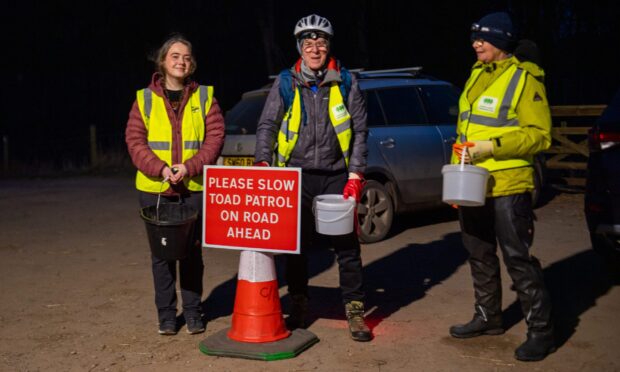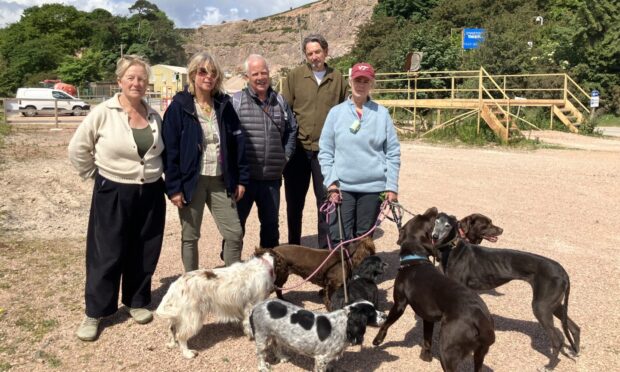Could you live in a tiny house? Plans for eco-homes in Fife could offer an alternative way of life and help tackle climate change.
That’s the hope of outdoor mentor Paula Cowie, who has secured a piece of land near Auchtermuchty for the scheme.
Paula has teamed up with leading vet and deer farmer John Fletcher, and his wife Nichola, of Reediehill Farm for the project.
She posted no fewer than 70 letters to local farmers asking if she could use their land for the eco-homes.
John was the only one who replied.
“He gets it,” said Paula.
“He really cares about sustainability.”
What is a ‘tiny house’ like?
Paula has lodged a full planning application for her ‘tiny houses’.
If councillors approve the proposal, it would see four homes no larger than 40ft by 10ft built at John’s farm.
The houses would be permanent homes, be off-grid and have composting toilets. There would be a central building with a washing machine, freezer for storing food and office space for those working from home.
Paula plans to live in one herself.
“I can’t wait.
“The most important thing for me isn’t so much the house, it’s the land.
“It’s a natural progression from the work that I do. I work for a charity and it’s all about young people and nature connection.
“For me this small community is a place for future generations. It’s for young people to come and connect more with the land, and be in a community.”
‘Research’
Paula says there will be a ‘research element’ to the project.
It will serve as an experiment to find out “how small can your footprint be, living in a tiny house.”
“You can’t have much stuff. You’re living a much simpler life.
“The most important thing is the energy consumption is very minimal.
“It doesn’t take as much energy to heat it up.
“The design of them is such high spec in terms of insulation, they just won’t need a lot of heat.”
Residents will be encouraged to car share to save fuel.
Meanwhile, there will be a communal growing area so the residents can produce some of their own food.
“There’s no mains water and no sewage connection. So they’re very autonomous.
“But they’re going to have very sophisticated compost toilets and they’re going to be recycling the water caught from the roofs into the food growing areas.”
Paula added the homes would be best suited to “people that don’t want to be indoors a lot.”
John was ‘highly sceptical’ at first
John admits he was “highly sceptical” when he first heard Paula’s tiny house plans.
“But that was about four or five years ago.
“Now, and through lockdown, we have seen more of her and I’ve become more and more impressed.”
He said Paula’s work mentoring children to connect with nature and her involvement in the Earthship Fife project in Kinghorn sparked his interest.
“The more she talked about it, the more I began to understand that it really is our duty to try and encourage things like this.
“I feel deeply that we have a duty to try and learn more about the countryside and try to get more involved in it.”













Conversation